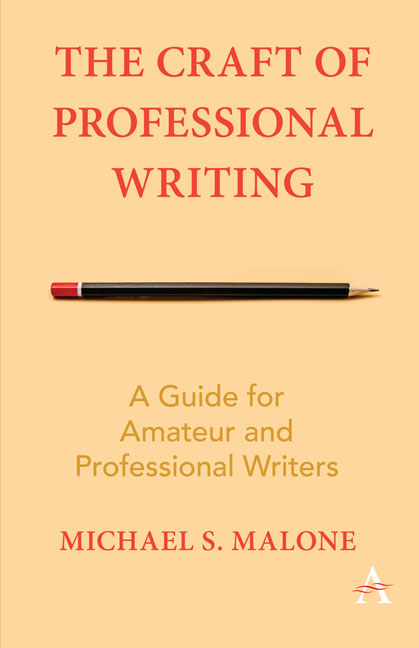Book contents
- Frontmatter
- Dedication
- Contents
- Introduction
- Part One Basics
- Part Two Corporate Careers and Disciplines
- Part Three Writing Careers in Media
- 8 Blogger
- 9 News Reporter
- 10 Critic
- 11 Essayist
- 12 Book Author
- 13 Television and Radio News Reporter
- 14 Screenwriter and Playwright
- 15 Fiction Writer and Novelist
- 16 Academic Track
- 17 Miscellaneous Writing
- Part Four The Work of Professional Writing
- Further Reading
- Suggested Assignments
- Index
10 - Critic
from Part Three - Writing Careers in Media
- Frontmatter
- Dedication
- Contents
- Introduction
- Part One Basics
- Part Two Corporate Careers and Disciplines
- Part Three Writing Careers in Media
- 8 Blogger
- 9 News Reporter
- 10 Critic
- 11 Essayist
- 12 Book Author
- 13 Television and Radio News Reporter
- 14 Screenwriter and Playwright
- 15 Fiction Writer and Novelist
- 16 Academic Track
- 17 Miscellaneous Writing
- Part Four The Work of Professional Writing
- Further Reading
- Suggested Assignments
- Index
Summary
What is criticism?
Criticism is the application of a deep understanding of a topic or field to the newest creations of that field. Criticism can also place past works of art or creation into a current context by challenging icons, rediscovering lost achievements or redirecting the viewer, reader or participant to new modes of understanding. Individuals who make their living in the field are typically known as critics; those who do it part- time are usually called reviewers.
Why criticism?
Because all fields of human endeavor, in order to advance, need critical judgment to recognize genius, determine quality and otherwise set standards. Criticism should be subordinate to the works themselves, yet should hold equal weight in terms of value to society.
Types of criticism— Criticism can be distinguished, not just by subject matter, but also by venue. Thus, some are created under tight deadlines while others can take years to prepare. By the same token, the majority of reviews deal with a single book, musical or dramatic performance, television show, movie, or recording. But there is also a genre of criticism that looks at the entire oeuvre of an artist, placing him or her in the larger context of an entire era or creative school.
Here is a partial list of types of criticism:
Newspaper reviews— These have the tightest deadlines of any form of criticism. And they run the gamut from books to opera, plays and musical, musical performances, television and movies, audio recordings, video games, and so forth. It is the nature of newspaper publishing— the need to make the next day's edition— that creates the time pressure. Writing newspaper reviews typically involves attending an afternoon or evening performance then returning to the newsroom (or remotely filing via email) to write the story in the hours (or minutes) before the morning edition “goes to bed” (that is, sent for printing). At best— perhaps for a weekend book review section—reviewers may have a few days to prepare their copy. Though there has been some great newspaper reviewing over the last two centuries, it is definitely work in which erudition and strong opinions take precedent over elegant writing. Newspapers that serve large metropolitan readerships typically have full- time staffers as reviewers (though with the decline of newspapers, that is changing), while smaller- circulation papers usually hire freelancers.
- Type
- Chapter
- Information
- The Craft of Professional WritingA Guide for Amateur and Professional Writers, pp. 141 - 160Publisher: Anthem PressPrint publication year: 2018



